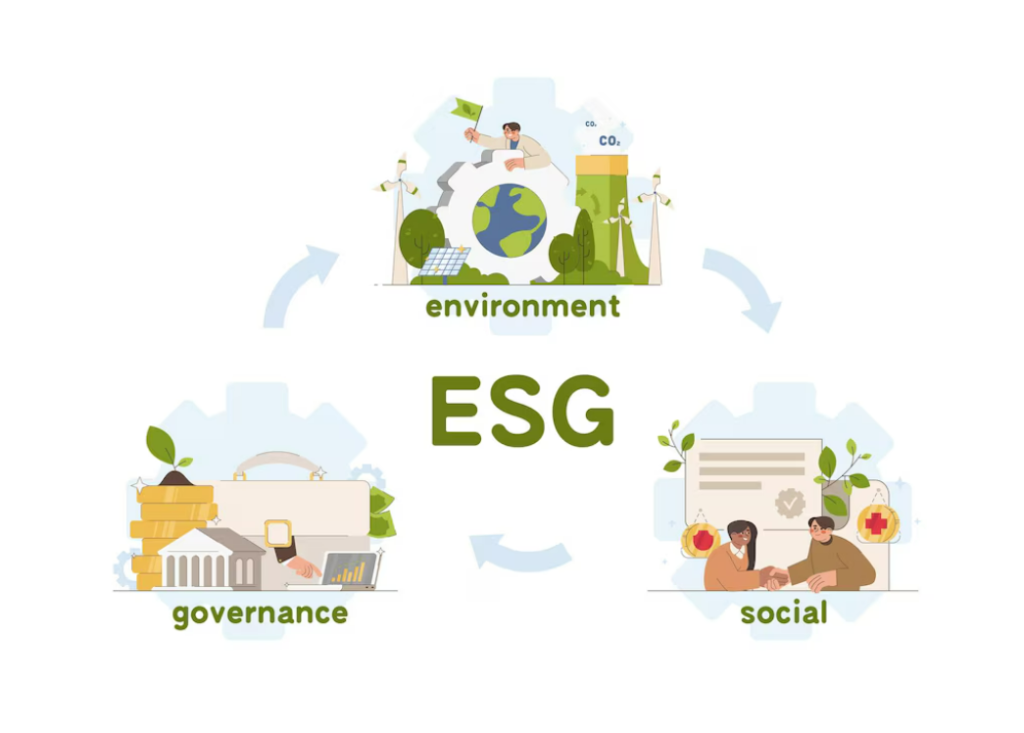ESG, which stands for Environmental, Social, and Governance, has become a prominent term in the business world in recent years. In this article, we will explore the evolution of ESG and its future implications for businesses.

The Emergence of ESG:
The concept of ESG first emerged in the 1990s with the rise of socially responsible investing (SRI). This approach involves considering not only financial performance but also the environmental and social impact of investments. As concerns about climate change and social issues increased, so did the importance of ESG in the business world.
Standardized Reporting:
In the early 2000s, there was a push for standardized reporting and disclosure of ESG performance. Organizations such as the Global Reporting Initiative (GRI) and the Sustainability Accounting Standards Board (SASB) provided guidelines for companies to report their ESG performance. This increased transparency helped investors make more informed decisions.
ESG Integration:
In recent years, there has been a shift towards ESG integration, where companies incorporate ESG factors into their overall business strategy and decision-making process. This is a departure from the earlier approach of solely reporting on ESG performance. As society becomes more environmentally and socially conscious, companies are recognizing the need to prioritize ESG to remain competitive.
The Future of ESG:
The COVID-19 pandemic has further highlighted the importance of ESG. The crisis has exposed the vulnerabilities of companies that were not prepared for environmental and social disruptions. As a result, there is a growing demand for companies to not only focus on financial performance but also consider their impact on the environment and society.
Continued Emphasis on ESG Integration:
In the future, we can expect to see a continued emphasis on ESG integration, with more companies incorporating ESG factors into their business strategies. This will not only benefit the environment and society, but it can also lead to improved financial performance.
Increase in Regulations and Standards:
Governments and regulatory bodies are also recognizing the importance of ESG and are likely to implement stricter guidelines for companies to follow. This will hold companies accountable for their ESG performance and level the playing field for businesses that prioritize ESG.
Consumer Demand:
Consumers will continue to drive the demand for ESG. As more people become aware of the impact of their purchasing decisions, they will be more likely to support companies that align with their values. This will put pressure on companies to improve their ESG performance to maintain their customer base.
Role of Technology and Data:
Advancements in technology will also play a significant role in the future of ESG. With access to more accurate and real-time data on their ESG performance, companies can make more informed decisions and track their progress effectively.
The Importance of ESG:
ESG is not just a trend, but a crucial factor in the success and longevity of businesses. Companies that prioritize ESG are more likely to be resilient in the face of changing environmental and social landscapes. They are also better equipped to attract and retain top talent, as employees seek to work for socially and environmentally responsible companies.
A Requirement for Investors:
ESG is no longer just a responsibility of businesses, but also a requirement for investors. In the past, companies could focus solely on financial performance, but now investors are looking for companies that are socially and environmentally responsible. This is because ESG factors can have a significant impact on a company’s financial performance and long-term sustainability.
Conclusion:
ESG has evolved from a concept to a critical aspect of business strategy and decision-making. As we look towards the future, we can expect to see a continued emphasis on ESG integration, stricter regulations, and increasing demand from consumers and investors. Businesses that prioritize ESG will not only contribute to a better world but also set themselves up for long-term success.
Thank you for sharing excellent informations. Your web-site is so cool. I’m impressed by the details that you have on this blog. It reveals how nicely you perceive this subject. Bookmarked this website page, will come back for more articles. You, my pal, ROCK! I found simply the info I already searched everywhere and just couldn’t come across. What a great web site.
Wow, thank you so much for your incredibly kind words! It means the world to me that you found the information helpful and took the time to share your thoughts. I’m thrilled the blog resonated with you—and knowing it covered exactly what you were searching for is the best compliment!
Your support (and the bookmark!) truly motivates me to keep creating content. If there’s ever a specific topic you’d love to see covered, just let me know. Thanks again, and hope to ‘see’ you back here soon! 😊🎉
P.S. — You ROCK too!
You actually make it seem really easy with your presentation but I to find this matter to be really one thing which I believe I might never understand. It sort of feels too complicated and extremely large for me. I’m looking ahead to your subsequent put up, I will try to get the hang of it!
you’re really a good webmaster. The site loading speed is amazing. It seems that you are doing any unique trick. In addition, The contents are masterpiece. you have done a great job on this topic!
Thanks for another magnificent post. Where else could anyone get that kind of information in such a perfect manner of writing? I’ve a presentation subsequent week, and I am on the look for such info.
Very interesting subject, regards for putting up. “There are several good protections against temptations, but the surest is cowardice.” by Mark Twain.